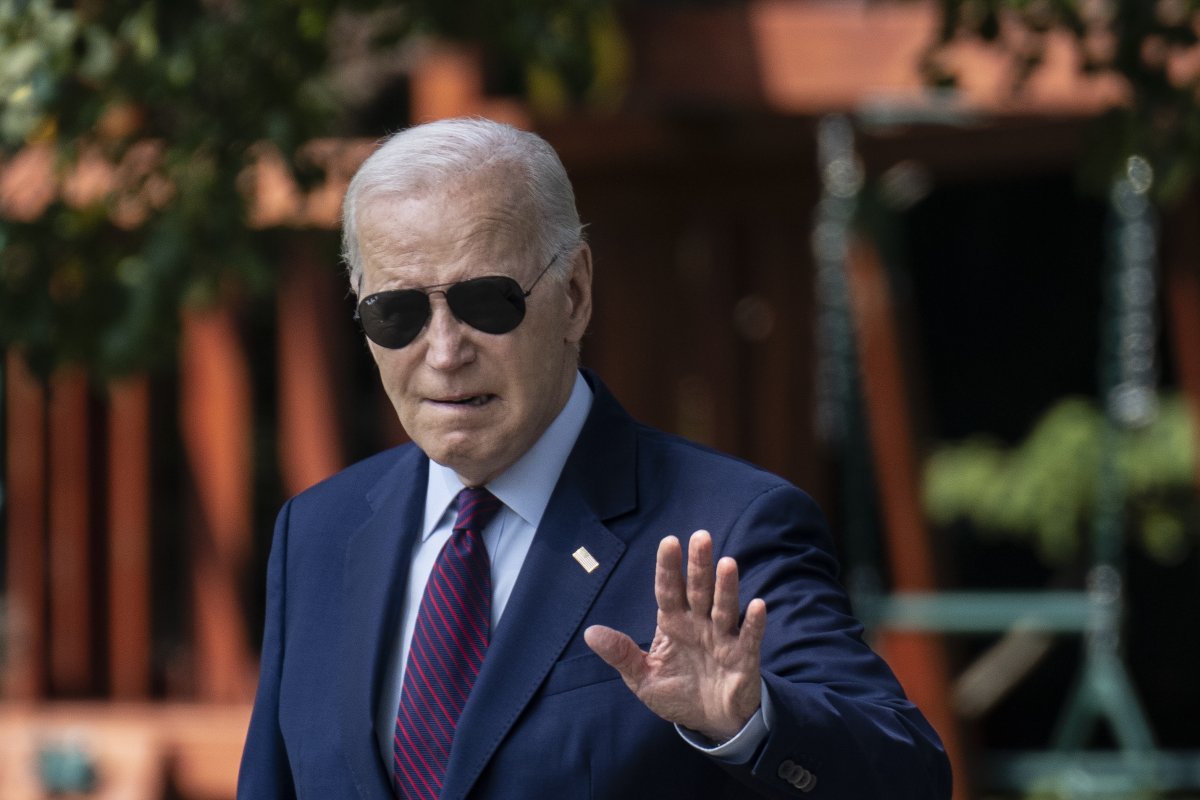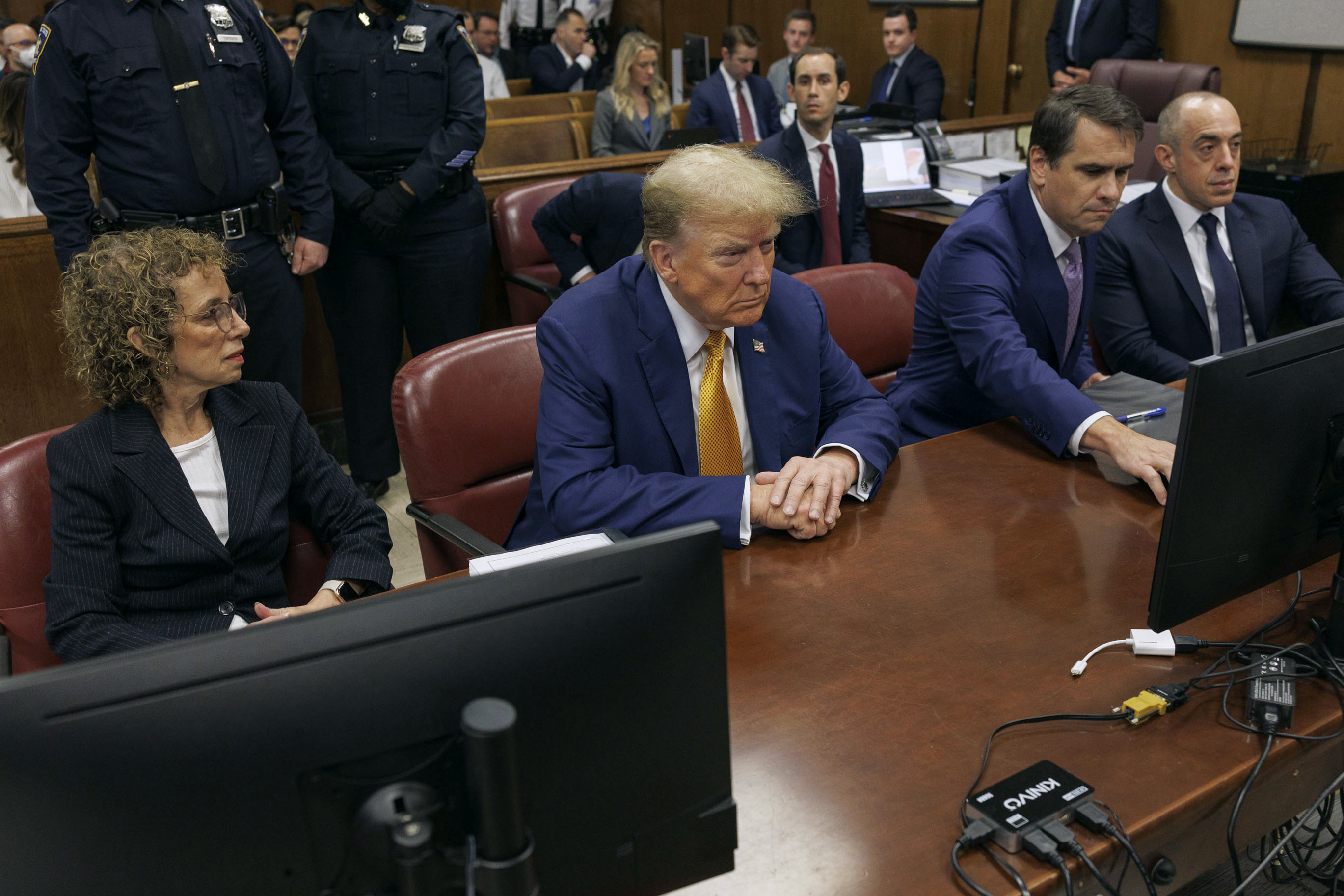Let me state at the outset my belief that electing Donald Trump as our next president would be a complete disaster and national tragedy. Let me further state that with the continual flow of indictment news, I am cheering for Trump to be convicted and sentenced to jail time for an array of actions that certainly appear criminal. Finally, I want to admit this is an agonizing column for me to write.
However, despite my personal views on Trump, an objective and rational analysis leads me to conclude that as of now it is more likely than not that Donald Trump is our next president. Below are the reasons behind this analysis, which explain what has led me to this extraordinarily disheartening view. You will also read why I believe it is unlikely anything will change this extremely pessimistic conclusion.
The Republican nomination is a lock: Florida's Republican Governor Ron DeSantis is fading fast and does not appear to have a strategy to regain traction. No other candidate appears to be developing any momentum, and other than Chris Christie, they are all too fearful of Trump supporters to even try to take the former president down. Moreover, the indictments have only strengthened Trump's grip on the nomination as he skillfully plays the victim, rallying Republican voters behind him.

The likelihood a surprise causes Trump not to be nominated: Very small. Even if he loses the Iowa caucuses, where DeSantis has shown some signs of life, that's rarely a bellwether in the Republican Party. Trump's primary lead nationally, and in most states, is substantial—so substantial that if history is a guide he is unbeatable. But, if this isn't enough, changes to Republican primary rules in a number of states to award all delegates to the statewide winner make Trump even more of a favorite.
Trump's legal troubles will not save us. Trump's lawyers will delay the various trials through endless motions, making any jury verdict before next spring unlikely, after Trump has a lock on the nomination.In fact, even if the DC trial is televised, strong advocacy on the part of Trump lawyers in the courtroom is going to give plenty of reinforcement to current Republican views that the charges are political and not disqualifying, and thus a trial itself is not likely to reduce Republican support.
Joe Biden will be the Democratic nominee: While there are some who still doubt this, unless some serious health issue were to develop, it is clear Biden will cruise to the nomination. Despite an extremely strong case that could be made for the state of the current economy and Bidenomics, Biden's most recent approval ratings hover around 40 percent, and his approval rating for managing the economy is most recently pegged at 39 percent—well below where it should be given the economy's performance. Coupled with the fact that 70 percent of the country does not want Biden to run again, it is more likely than not that his approval numbers will remain in this range. Meaning, despite a solid record to run on, Biden will not be a strongly popular nominee.
Kamala Harris will not be replaced on the ticket: Although there is chatter about the Democratic convention in August being used to nominate a different vice-presidential candidate, the likelihood of that happening is very small. That makes it likely that the questions voters have about Biden's age—and possible infirmity—will have an answer the majority of Americans won't like: Harris taking over as president. Perceptions of Harris seem unlikely to change, and there would be substantial risks for Biden with key Democratic constituencies if Harris were replaced.
Biden can beat Trump one on one: None of the above matters in terms of whether Biden can beat Trump in the key swing states in a race between the two of them. The issue of abortion—as demonstrated in Wisconsin, and now Ohio and elsewhere—could definitely carry Biden to victory, assuming the economy stays strong. Independent suburban women, the key swing constituency, will continue to reject Republican candidates who support restrictive abortion policies. They also strongly disagree with Trump's anti-democratic actions, which continue to be revealed as ever-more egregious.
Unfortunately, this will not be a one-on-one Presidential election: The likelihood that the 2024 presidential race is solely between Donald Trump and Joe Biden seems to be diminishing every day. The No Labels group's efforts seem to be more serious than ever in terms of fundraising and gaining access to state ballots. Moreover, if Trump is convicted prior to the election and continues to run for president as a felon, given the likelihood of him securing sufficient delegates before a trail is completed—it would ensure a major third-party candidacy going forward. No Labels would argue voters must at least be given a choice between two non-felons.
A No Labels ticket of a centrist Democrat and a moderate Republican would attract votes from the large majority of citizens who are dissatisfied with the Biden/Trump choice. That now seems to be the key variable that will determine the outcome of the 2024 race. In addition, Cornel West gaining the Green Party nomination would be a further meaningful factor.
Looking at the evidence provided by the last 50 years on the impact of third-party candidates—many of which were much weaker in stature than a No Labels unity ticket would be—clearly portends a significant draining of votes from Biden. That would enable Donald Trump to win the key swing states with only a plurality of votes. Meaning Trump could win fair and square without any efforts by local or state election officials to disrupt the results.
Without going through all the data that supports this point, before Trump, the only two incumbent presidents to lose reelection in the last 50 years have had a strong third-party bid to deal with—Jimmy Carter in 1980 and George H.W. Bush in 1992,
Doubts that massive civic participation can change this outcome: We saw in Israel how more progressive forces can take to the streets in mass protest a right-wing takeover of the government. I do not see—at least not yet—anything close to that degree of societal reaction to the likelihood that Donald Trump will be our next president. Moreover, even with that unprecedented level of citizen participation in Israel, the protests have failed to change the situation. Worse, those protests occurred post-election, after the right-wing had already gained control of the government. Obviously, there must be a huge popular outcry before, not after, Donald Trump is elected.
We need unprecedented registration of young and minority voters to overcome the dynamics of a third party: Yes, we need this badly. However, that kind of effort is unlikely to overcome the drain of 5 to 10 percent of potential Biden voters who support independent tickets. Remember, Biden won by less than 1 percent in the three swing states that gave him the Electoral College victory. The greatest opportunity for growing voter registration and participation in swing states potentially sympathetic to Biden is among young voters. But they are also particularly susceptible to the idea of voting for a more youthful independent ticket. Dissatisfaction in that demographic runs high, with a desire to have more than a choice between two old white guys.
There is a lot that will change. Of course, an awful lot we can't guess is going to happen in the next 15 months, and that could throw all these likelihoods up in the air. But based on what we know today, it is much more likely than not that Donald Trump is our next president. Time to freak out.
Tom Rogers is an editor-at-large for Newsweek, the founder of CNBC and a CNBC contributor. He also established MSNBC, is the former CEO of TiVo, and a member of Keep Our Republic, an organization dedicated to preserving the nation's democracy.
The views expressed in this article are the writer's own.
Uncommon Knowledge
Newsweek is committed to challenging conventional wisdom and finding connections in the search for common ground.
Newsweek is committed to challenging conventional wisdom and finding connections in the search for common ground.
About the writer
To read how Newsweek uses AI as a newsroom tool, Click here.






